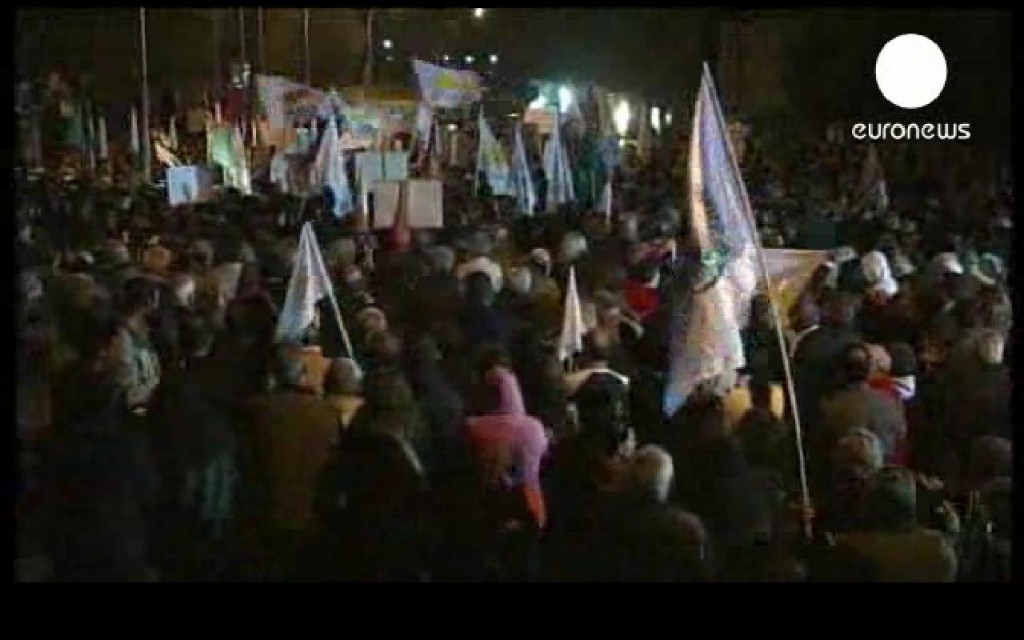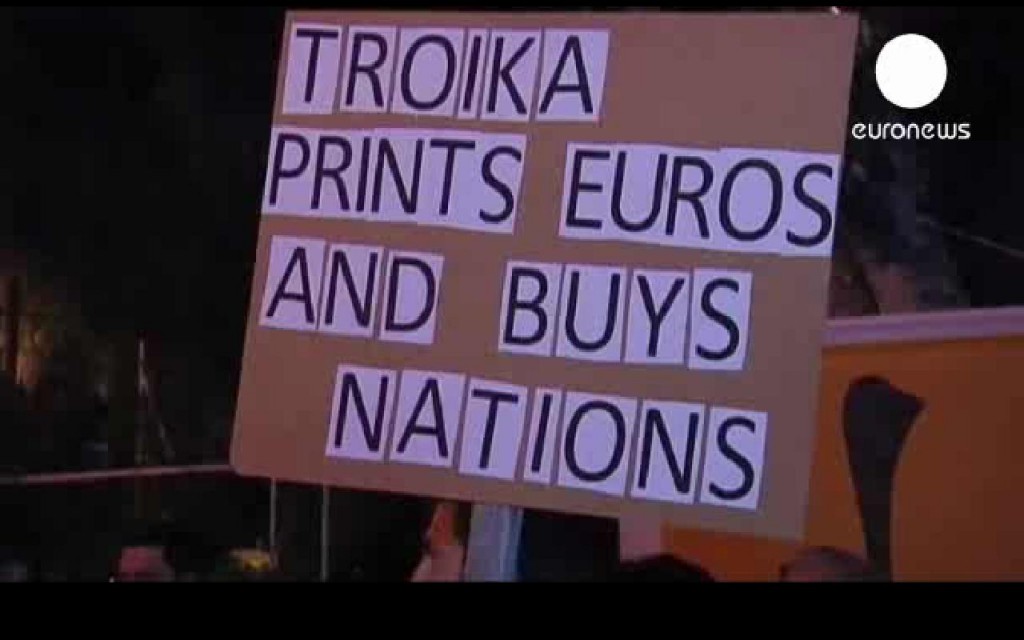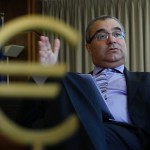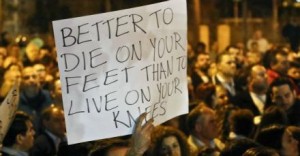Behind the Scenes at JP Morgan Is An Army of Plutocrats from the Global Elite: Bilderbergers, CFR, Trilateralists, Henry Kissinger, World Economic Forum, Group of 30, Industrialists, Oil men and Billionaires from around the World Control the 4 Trillion Dollar Bank Operations
Occupy.com’s report on the Banking Influence by Andrew Gavin Marshall Exposes the Globalist Powers Infesting the Bank.
Global Power Project, Part 4: Banking on Influence with JPMorgan ChaseWed, 7/3/2013 – by Andrew Gavin Marshall
In May, JPMorgan Chase was listed as the largest bank in the world with assets at roughly $4 trillion — some $1.53 trillion of it in derivatives. This was reported a month after the announcement that the bank had posted a record first-quarter profit of $6.5 billion.
Jamie Dimon, the bank’s CEO and Chairman, has faced a host of scandals in relation to his management of the megabank, including the loss of roughly $6 billion through the London branch of the bank — losses that Dimon was accused of hiding. A 300-page report by the U.S. Senate, investigating the “creative accounting” of JPMorgan, noted that the bank “hid losses, did not share information with its regulators, and misled the public” in what one banking regulator referred to as “make believe voodoo magic.” Stated bluntly in The New York Times, JPMorgan Chase, the largest derivatives dealer in the world, “is too big to regulate.”
In the midst of the scandal, the bank faced a potential “revolt” of its shareholders in a bid to strip Dimon of his dual role as CEO and Chairman. In confidential government reports which were leaked to The New York Times, the bank was accused of “manipulative schemes” which transformed “money-losing power plants into powerful profit centers” while executives made “false and misleading statements” under oath.
Yet even in the midst of scandal, Jamie Dimon was praised in a storm of support by billionaires, corporate kingpins and media barons. Calling JPMorgan Chase “as good a bank as there is,” New York City mayor and billionaire media baron Michael Bloomberg went on to call Dimon “a very smart, honest, great executive.” News Corporation chairman Rupert Murdoch praised Dimon as “one of the smartest, toughest guys around,” while Jack Welch, former chairman and CEO of General Electric, referred to him as a “great leader” and said he had earned the “right to hold both Chairman and CEO titles.” To top it off, billionaire investor and CEO of Berkshire Hathaway, Warren Buffet, dubbed Dimon “a fabulous banker.”
And the adoration goes all the way to the top rung. In 2009, The New York Times referred to Jamie Dimon as “President Obama’s favorite banker.” In 2010, Obama told Bloomberg BusinessWeek that he didn’t “begrudge” bank CEOs like Jamie Dimon and Lloyd Blankfein of Goldman Sachs for their massive bonuses of $17 and $9 million, respectively. Obama explained: “I, like most of the American people, don’t begrudge people success or wealth. That is part of the free-market system.” The president added, “I know both those guys; they are very savvy businessmen.”
In May of 2012, Obama rushed to Jamie Dimon’s defense in light of the financial scandals, stating that Dimon was “one of the smartest bankers we got.” The Financial Times referred to Dimon as “the last king of Wall Street.” And when finally faced with the decision to strip Dimon of his dual role as chairman and CEO, Obama’s “favorite banker” ended up winning “a decisive victory” by maintaining both his roles.
But this is just the surface of JPMorgan Chase’s financial manipulations. The bank, in fact, was at the forefront of creating Credit Default Swaps (CDS), a key aspect of the derivatives market that led to the inflation and subsequent blowout of the housing bubble. JPMorgan developed these “financial instruments” as a type of insurance policy in 1994, allowing the bank to trade its debt (in the form of loans to corporations and governments) to third parties, thus handing off the risk and removing the debts from its accounts, which allowed it to make further loans. JPMorgan opened up the first CDS desk in New York in 1997, “a division that would eventually earn the name the Morgan Mafia for the number of former members who went on to senior positions at global banks and hedge funds.” Back in 2003, the same Warren Buffet who would later praise Dimon referred to credit default swaps as “financial weapons of mass destruction.”
JPMorgan was also at the forefront in the United States pushing for financial deregulation, particularly the slow-motion dismantling of the Glass-Steagall Act that had been put in place in 1933 in response to the financial speculation which had helped spark the Great Depression. After hearing proposals from banks such as Citicorp, JP Morgan and Bankers Trust, which advocated the loosening of “restrictions” put in place by Glass-Steagall, the Federal Reserve Board in 1987 voted to ease many of the regulations. That same year, Alan Greenspan, who had previously been a director of JP Morgan, became the chairman of the Fed. In 1989, the Fed approved an application submitted by JP Morgan, Chase Manhattan, Citicorp and Bankers Trust to further reduce the regulations imposed by Glass-Steagall. In 1990, JP Morgan became “the first bank to receive permission from the Federal Reserve to underwrite securities.”
Financial deregulation accelerated under President Clinton, much to the delight of Wall Street banks, which were then permitted to merge into megabanks, with JPMorgan merging with Chase Manhattan to form JPMorgan Chase. As early as 2006 and 2007, multiple megabanks were beginning to bet against the housing market through various hedge funds, allowing them to make profits on the housing collapse they created. JPMorgan continued to sell mortgages as it bet against the mortgage market, passing on the risk while it hedged its bets to profit from the failure and losses of others. In 2011, the bank paid a $153 million fine to the Securities and Exchange Commission (SEC) to settle allegations of “securities fraud.”
In the midst of the financial crisis in 2008, JPMorgan Chase became not only a major criminal, but also a prime beneficiary. In 2007, the global investment bank Bear Stearns was named by Fortune magazine as the second “most admired” financial securities company in the United States, while Lehman Brothers was put in first place. As the financial crisis erupted, Bear Stearns executives “discovered” that they were “nearly out of cash” in March of 2008. The CEO of Bear Stearns, Alan Schwartz, made a phone call to Jamie Dimon — JPMorgan Chase was the clearing agent for Bear Stearns — asking for an overnight loan. Dimon, who also sat on the board of directors of the Federal Reserve Bank of New York, turned there instead of providing the loan through his own bank. The president of the New York Fed – who was elected by the banks that own the New York Fed – was Timothy Geithner. Geithner began discussions with Bear Stearns, and the following morning he held a meeting with Federal Reserve Chairman Ben Bernanke and Treasury Secretary Henry Paulson, the former CEO of Goldman Sachs, where they agreed to an emergency loan for Bear Stearns, providing the funds through JPMorgan Chase.



